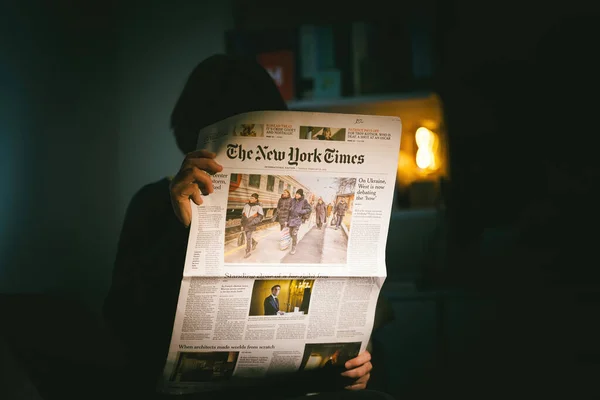The New York Times Signs AI Content Licensing Deal with Amazon, Marking a Milestone in the Digital Journalism Era

The New York Times has signed a multiyear licensing deal with Amazon that will allow the tech giant to integrate its journalism, recipes, and sports content into its Alexa virtual assistant and artificial intelligence (AI) models being developed by Amazon.
This is the New York Times’ first AI-focused licensing deal, and comes as the newspaper continues to pursue lawsuits against OpenAI and Microsoft, alleging that they are illegally using their content to train AI models that compete directly with traditional journalism.
NYT Content Will Be Integrated into Alexa and Proprietary AI Models
According to an official announcement Thursday, the deal will allow Amazon to display real-time news summaries and excerpts from The New York Times, NYT Cooking, and The Athletic on devices using Alexa and its other AI platforms.
Amazon will also use the licensed content to train large language models (LLMs), enhancing the accuracy and contextual relevance of future AI products, including Alexa+, a new version of Amazon's virtual assistant that is rolling out to its first 100,000 users.
NYT's 'Cooperative, Defensive' Strategy
The New York Times CEO, Meredith Kopit Levien, said in an internal memo:
“This agreement is consistent with our deliberate approach – ensuring that our content is properly valued, either through formal commercial agreements or by enforcing our intellectual property rights.”
Although financial terms were not disclosed, the deal is seen as a strategic move as the media industry faces a major challenge from the rise of general AI, particularly when language models can reproduce and summarize news stories in real time.
OpenAI-Microsoft lawsuit still ongoing
In parallel with the Amazon settlement, the NYT is still pursuing a copyright lawsuit against OpenAI and Microsoft, filed in December 2023. According to the lawsuit, the two companies used millions of articles from The Times without permission to train AI models capable of creating products that replace traditional journalism.
This past April, Federal Judge Sidney Stein rejected the defendants' request to dismiss the lawsuit, allowing the direct and indirect copyright infringement claims to continue.
Amazon accelerates AI race with Alexa+
For Amazon, the NYT settlement is part of an effort to step up its AI game, where the company has lagged behind rivals like OpenAI, Google, and Anthropic.
Earlier this month, Amazon began rolling out an upgraded version of Alexa+, powered by Claude AI from Anthropic, with the goal of turning the virtual assistant into a more powerful and intelligent contextual conversation tool.
In the coming months, Alexa+ users will be able to access journalism from The New York Times directly through their smartphone or smart home devices, marking a new development in the way journalism is distributed in the AI era.
Conclusion
The deal between The New York Times and Amazon not only reflects a fundamental shift in journalism content distribution strategy, but also shows a new trend that is taking shape: mainstream media are looking for controlled partnerships with AI companies rather than outright confrontation.
With this move, NYT can create new revenue streams while maintaining control over intellectual property – a difficult problem that many publishers are struggling to solve in the AI era.
